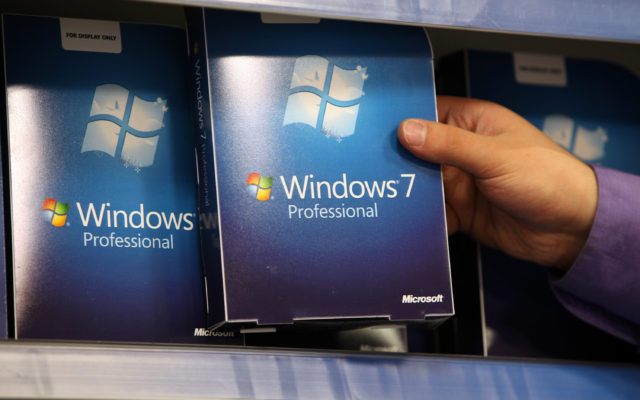(Actual Book) Book Blogging Into the Brave New Year

“Books are a uniquely portable magic,” the author Stephen King has said. He probably said it before the age of the Kindle and other e-readers. When people ask me why I prefer physical books, I have trouble explaining. Friends stress their Kindle’s convenience. But none of my books has ever run out of charge, or needed rebooting. And maybe I like the idea of each book being its own object. You can read the text of a book on your electronic screen, but that’s not the same as holding the book. A book can only ever be the book it is. Somehow, that matters.
Here’s what I’ve been into since the start of the year…
“The Difference Engine” by William Gibson and Bruce Sterling (1991) This sci-fi novel’s premise is fascinating: what if the age of the computer had come along a century earlier, in the Industrial Revolution-period of the mid 1800s? The lingo for computing and computers (“engines) is a little different, and the intrigue of the plot will hook you. Both authors are better known for other works, but this is one very imaginative story.
“Last Stands: Why Men Fight When All is Lost” by Michael Walsh (2020) I like Michael Walsh as an opinion writer, and I get what he was going for here: a journey through the times when civilizations and societies were defended by men and actions we devalue today. As a whole volume, it doesn’t quite hang together. I’d recommend skimming and reading the parts that interest you; you’ll still get his (valid) point.
“Speaker of Mandarin” by Ruth Rendell (1983) After Rendell’s Inspector Wexford returns from a disturbing, turbulent business trip/vacation in China, he’s tasked with solving the murder of one his former fellow travelers. Rendell is often, and sometimes unfairly compared to Agatha Christie (she’s great in her own right), but this Wexford novel is actually very Christie-like. Intentionally?
“Gone Tomorrow” by Lee Child (2009) I recently recommended the Child/”Jack Reacher” series to a family member, with the warning that Reacher is a very, very chatty narrator. Sure enough, she couldn’t take it. But whatever the plot, I actually enjoy all of his asides and descriptions. Here, you’ll learn how to spot a suicide bomber, which could come in handy. As always, the plot is complicated and suspenseful.
“School Days” by Robert Parker (2005) Like Reacher, “Spenser” is a chatty narrator. The snappy dialogue and cutting character sketches are a trademark of the series (they remind me of Rex Stout that way). In this installment, a wealthy woman hires Spenser to prove that her grandson was not a notorious school shooter. Even as Spenser comes to believe that he’s guilty, he persists in finding out why the slaughter happened. Which leads to a lot more than anyone expected.
“Growing Yourself Back Up: Understanding Emotional Regression” by John Lee (2001). Ever felt like a little kid after getting a dress-down from the boss? Or feel yourself slipping into petty emotions when facing rejection. This author has the simple, clear explanation, and tips on how to not “go there” in the first place.
“One Giant Leap: The Impossible Mission That Flew Us to the Moon” by Charles Fishman (2019) I’ll avoid Saturn booster analogies, and just say this book takes off, powerfully, from the first page, and never returns you to Earth until the end. It might be the best, most-detailed overview of the “space race” ever. Highly, highly recommend you read it!
“Message from Malaga” by Helen MacInnes (1971) One of the grande dames of espionage writers, MacInnes’ career spanned over five decades. Married to an actual MI6 operative, MacInnes was inspired to her plots by a European honeymoon that coincided with the rise of Nazism. “Malaga” is really one of her best novels. As always, the hero is reluctant and amateur, but behaves with dash and daring. Because of the plot, MacInnes’ characters deliver a stirring lecture on freedom that someone should force-feed to today’s so-called “progressives”. You will think she was looking into our present day from 50 years ago.
“Nobody’s Perfect” by Donald Westlake (1977) Westlake’s unbeatable Dortmunder character is heading up the river for boosting TV sets. Then a high-powered lawyer gets him off, brilliantly. The price: he has to steal a painting from the owner, and give it back to him. He and his not-so-merry band wind up having to steal it twice, and that’s only part of the twists and turns. You never go wrong with Westlake.
“The Last Raven” by Craig Thomas (1990) Thomas’ novels are Cold War-themed, and as such, people might skip them as dated. But if you love a good spy thriller, in the tradition of Ludlum, Higgins, and more modern writers like Jason Matthews or Daniel Silva, read all the Thomas books. In this one, the Brits are investigating what looks like an American shoot-down of a jetliner carrying the Russian first lady.
“Evidence” by Jonathan Kellerman (2009) The crime solving duo of Dr. Alex Delaware and Detective Lt. Milo Sturgis start out with two dead people locked in a carnal embrace inside an abandoned Holmby Hills mansion, and wind up enveloped in a plot involving a foreign royal and deeply strange eco-terrorists.
“The Years of Lyndon Johnson: Passage to Power” by Robert Caro (2012) In his multivolume bio of our 36th president, this book focuses on the end of LBJ’s Senate career, the failed presidential run, becoming Kennedy’s running mate, and the events around November 22, 1963. Caro’s series is one of the greatest works of American history—in profiling figures from Ike to Kennedy to Nixon, and all the power players around them, he’s teaching us about how we became who we are today. A lot of reading, but always fast moving. As a side note, reading it during the start of a new presidency makes you think about a lot of things, and wish for others.
You Might Also Like



